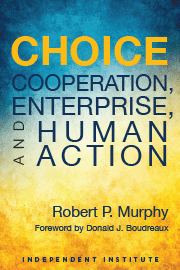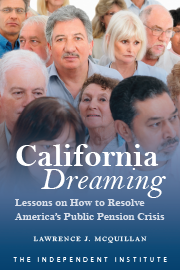Raymond March • Thursday, June 21, 2018 •
 Kourtney Kardashian has been all over the internet again, but not for reasons we’ve come to expect.
Kourtney Kardashian has been all over the internet again, but not for reasons we’ve come to expect.
The TV persona and entrepreneur recently spoke on Capitol Hill in an attempt to motivate the federal government to play a larger role in regulating cosmetics. Expressing concern some cosmetic products may contain unsafe ingredients, Ms. Kardashian said: “Everyone should have the right to healthy products and personal care, and that’s why I wanted to come and make this a bigger deal.” She also added, “it would be nice if there were laws to regulate cosmetics so that the people running these businesses and these companies can have some standard of what to use.”
Such laws may be on their way. The Personal Care Products Safety Act would require cosmetic companies to register with the Food and Drug Administration and submit lists of their products’ ingredients. The bill would also grant the FDA authority to prohibit distribution of products it deems unsafe.
Several members of Congress are teaming up with Ms. Kardashian. Among the most vocal advocates for more government in makeup is Representative Frank Pallone (D-NJ), who noted: “the laws for cosmetics have been left untouched for nearly 80 years.”
Carl Close • Wednesday, June 20, 2018 •
[This post first appeared in the June 19, 2018, issue of The Lighthouse, the weekly newsletter of the Independent Institute. To stay current with Independent’s latest work to boldly advance free societies, enter your email address here.]
Once known only as military weapons or hobby toys, drones (or unmanned aerial vehicles—UAVs) are predicted to play increasingly visible roles in a broad range of industries, including fire control, industrial inspections, crop dusting, real estate listings, and retail delivery. What does the age of the drone mean for human freedom and well-being? In his introduction to the symposium in the summer issue of The Independent Review, journal co-editor Christopher J. Coyne (George Mason Univ.) stresses that UAVs offer significant potential benefits, but also pose new risks such as more lethal power and opportunities for civil-rights violations.
K. Lloyd Billingsley • Wednesday, June 20, 2018 •
As the Washington Examiner reports, “the state of Illinois has approved $224 million to pay for street and transportation projects in Chicago’s South Side neighborhood around the Obama Presidential Center site, $199 million of which will fall directly on the shoulders of Illinois taxpayers.” Chicago Mayor Rahm Emanuel hailed the state’s “$174 million investment in infrastructure improvements as “money well spent” but the Obama Presidential Center, 235 high, will be a monument to government waste.
Taxpayers might recall the Solyndra debacle, $535 million in federal government loans, that produced essentially nothing. The company’s sole legacy is the SOL grotto in Berkeley, California.
Alvaro Vargas Llosa • Tuesday, June 19, 2018 •
 Much of the news media has been focusing on Italy, where a coalition of leftwing and rightwing populist parties has taken over the reins of government in the context of severe economic problems. Italy’s government debt amounts to about 130 percent of the country’s GDP, and the banking system holds, among other things, about one-fourth of Europe’s toxic assets. Combined with a strong anti-European Union and anti-establishment sentiment in the midst of a very weak economic recovery, all this has produced a populist government and spooked markets, politicians, and commentators around the globe.
Much of the news media has been focusing on Italy, where a coalition of leftwing and rightwing populist parties has taken over the reins of government in the context of severe economic problems. Italy’s government debt amounts to about 130 percent of the country’s GDP, and the banking system holds, among other things, about one-fourth of Europe’s toxic assets. Combined with a strong anti-European Union and anti-establishment sentiment in the midst of a very weak economic recovery, all this has produced a populist government and spooked markets, politicians, and commentators around the globe.
But Europe is not the only part of the world that should have us worried about mounting debt and its political ramifications. The United States has serious debt problems that have not been addressed since the financial crisis shook the world a decade ago—qqqthey have actually been compounded. While artificially low interest rates lasted, these problems could be concealed or kicked down the road, but now that the rates are gradually going up again they are going to have serious effects.
In the past decade, U.S. federal government debt doubled from $10.6 trillion to $21 trillion, household debt is at more than $13 trillion, even higher than it was on the eve of the financial crisis in 2008, and corporate debt (excluding banks and insurance companies) is now equivalent to an unprecedented 45 percent of GDP. To make things even more interesting, mortgages, one of the great causes of the disaster a decade ago, are exploding once again. Household mortgage debt outstanding, including one-to-four family residences and multifamily residences, is now at a similar level to where it was ten years ago.
Raymond March • Tuesday, June 19, 2018 •
Last August, the U.S. Food and Drug Administration began testing MDMA (ecstasy) for treating post-traumatic stress disorder. The FDA also granted MDMA breakthrough therapy status to expedite the approval process by making it easier for drugmakers to begin clinical trials.
Recently, MDMA passed phase 2 of the FDA’s four-phase drug-approval process. Although phase 3 requires a large sample and a longer period to complete, the drugs that reach this phase are typically approved. Evidence of MDMA’s “impressive” therapeutic benefits is now published in The Lancet Psychiatry journal. Stemming from the drug’s successful clinical trial results, many expect MDMA to be approved for therapeutic use by 2021.
Randall Holcombe • Monday, June 18, 2018 •
This article says “Seattle is struggling to find a path forward to deal with a crisis that’s exploded in recent years.” What is that crisis? An economic boom!
The article says, “unemployment in the county is at 3%, the lowest in the state… Housing is becoming less affordable, leading to more homelessness. At the same time, Washington’s tax laws gave cities few options when it comes to raising funds for more housing. … Those rent increases have been partly driven up by an influx of well-paid tech workers.”
The article focuses heavily on Amazon, noting, “Amazon has about 45,000 employees in the city, where it is it’s largest private employer. Those employees tend to earn good salaries, allowing landlords to bid up the price of scarce housing and causing rental costs across the area to rise.”
Raymond March • Monday, June 18, 2018 •
On May 30, President Trump signed a bill into law allowing terminally ill patients access to potentially lifesaving drugs before they are approved by the Food and Drug Administration. This bill, referred to as right-to-try legislation, provides an unprecedented curtailing of the FDA’s regulatory authority.
At a bill signing ceremony, the president remarked, “Thousands of terminally ill Americans will finally have hope.” He is right. With nearly 25,000 patients dying annually while waiting for the FDA to approve potentially lifesaving drugs, opening additional avenues for these patients is paramount. Although right-to-try is inherently risky, easier access to experimental drugs provides more options in literally hopeless situations.
Vicki Alger • Saturday, June 16, 2018 •
Any day now the U.S. Supreme Court is expected to rule in Janus v. American Federation of State, County, and Municipal Employees, a case brought against government unions for charging non-members “agency fees.” If unions are prohibited from charging those fees, the cost of members’ dues could soar—qqqby hundreds of dollars in the case of California Teachers Association members. The result? Less money and fewer members.
A favorable ruling would be great news for non-union members, but what about the rest of us?
In his latest California Policy Center column Larry Sand, a former classroom teacher and California Teachers Empowerment Network President, shows there is still plenty of work to be done in the states no matter how SCOTUS rules.
K. Lloyd Billingsley • Friday, June 15, 2018 •
As NBC reported in February, “San Francisco’s nearly 30,000 car break-ins last year shattered previous crime records,” a veritable “epidemic.” Of the nearly 30,000 car break-ins the police department made arrests in just 1.7 percent of cases, totaling 790 arrests and “of those taken into custody, most were never sentenced to jail time.” That is due to Proposition 47, the 2014 measure that, as the Associated Press reports, “lowered sentences for drug possession, theft, shoplifting, identity theft, receiving stolen property, writing bad checks and check forgery from felonies that can bring prison terms to misdemeanors that often bring minimal jail sentences.” Or as NBC noted, no jail time at all. The measure’s implicit message is “do the crime, don’t do the time.”
Craig Eyermann • Friday, June 15, 2018 •
Following the release of the U.S. Treasury’s monthly statement for May 2018, the Wall Street Journal has some grim news about the U.S. government’s fiscal situation:
The U.S. government’s budget deficit widened in the first eight months of the fiscal year, reflecting lower revenue from corporate taxes combined with ramped-up government spending.
The deficit, or the difference between the amount of money the federal government spent and what it took in, totaled $532.24 billion in October through May, the Treasury Department said Tuesday. That was 23% more than the deficit of $432.85 billion during the same period a year earlier.
 Kourtney Kardashian has been all over the internet again, but not for reasons we’ve come to expect.
Kourtney Kardashian has been all over the internet again, but not for reasons we’ve come to expect.























 Much of the news media has been focusing on Italy, where a coalition of leftwing and rightwing populist parties has taken over the reins of government in the context of severe economic problems. Italy’s government debt amounts to about 130 percent of the country’s GDP, and the banking system holds, among other things, about one-fourth of Europe’s toxic assets. Combined with a strong anti-European Union and anti-establishment sentiment in the midst of a very weak economic recovery, all this has produced a populist government and spooked markets, politicians, and commentators around the globe.
Much of the news media has been focusing on Italy, where a coalition of leftwing and rightwing populist parties has taken over the reins of government in the context of severe economic problems. Italy’s government debt amounts to about 130 percent of the country’s GDP, and the banking system holds, among other things, about one-fourth of Europe’s toxic assets. Combined with a strong anti-European Union and anti-establishment sentiment in the midst of a very weak economic recovery, all this has produced a populist government and spooked markets, politicians, and commentators around the globe.